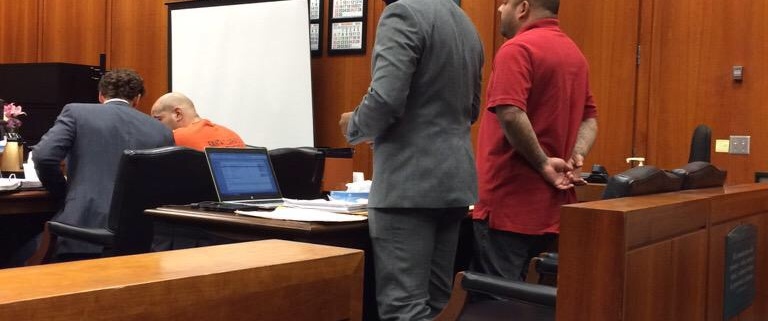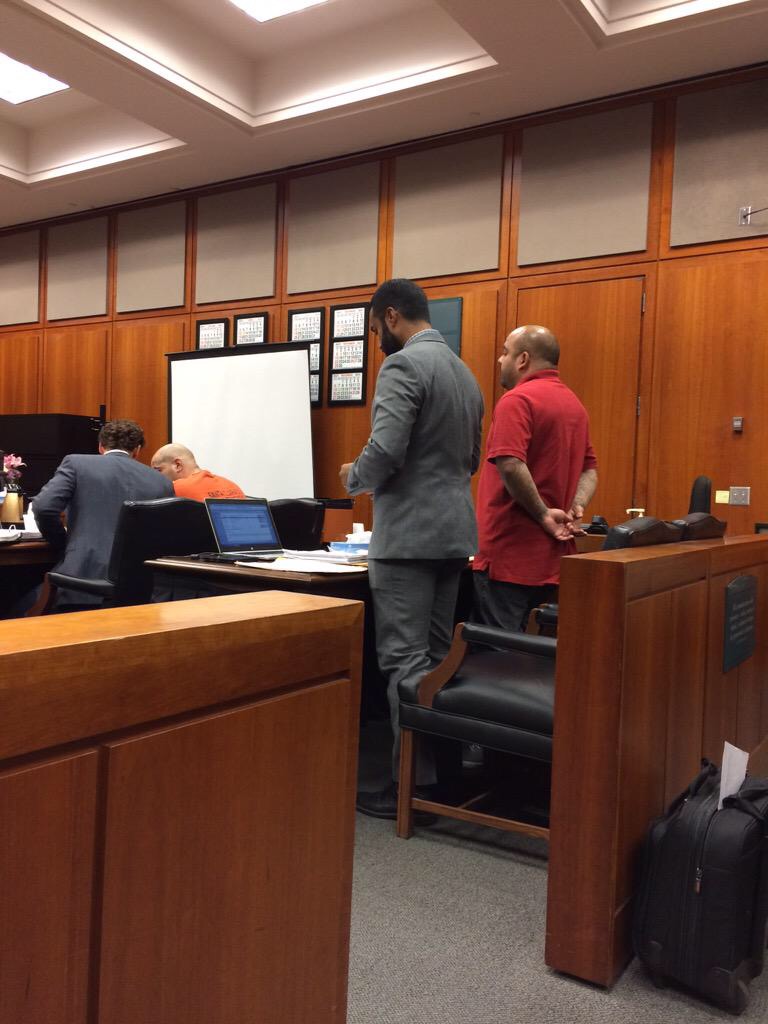Upholding my clients’ trust
By Sajid Khan
The client had been assigned to me for six weeks but I hadn’t met him yet. He didn’t return my calls and I wasn’t sure if his phone was operable. I reviewed the police reports, the preliminary hearing transcript, the notes of the attorneys that preceded me. I knew his case but didn’t know him, yet. His trial date arrived and we were on the cusp of a blind date; he the accused, I his public defender. I called out his name in the bustling Santa Clara County courtroom, he raised his hand and I finally put a face to the name on the file that had occupied a piece of my office for the past several weeks. We escaped into a court interview room and I introduced myself to this man, over 10 years my senior. We discussed his background, his current circumstances, the charges against him and his options. He told me about his job, family and health issues. He hesitated to talk about the case and was defensive about the charges; I sensed embarrassment and shame in his voice. As we talked about potential outcomes, I felt his fear and trepidation of losing his job, his liberty.
Another morning, I strolled into my office to find a new file, a new client, in my mailbox. I opened it to see a face sheet littered with over a dozen serious felony charges, each allegation more grave than the next. I studied the witness statements, photographs and audio recordings that filled the file. It was clear: if this client was convicted as charged, he would spend his life in prison. Days later, I went to see him at the jail where he was held without bail. He, nearly 10 years my junior, was escorted into the interview room by a correctional officer and locked to his seat. He struggled to lift his hand, chained to his waist, to shake mine. We conversed about his upbringing, his mental health issues, how he was doing in custody. The conversation eventually turned to the charges and his exposure to a potential life sentence. Suddenly, the tenor changed and he asked, “are you going to help save me from life in prison?”
A different day, I arrived to my office to see my phone’s voicemail light blinking. A client had left multiple messages, one after another, at 5am earlier that morning. He was calling not to talk but instead to vent his grievances about me and the court process: that I wasn’t doing enough on his behalf, that I didn’t understand his situation and needs, that the court was not sensitive to his circumstances. Anger, frustration and fear filled his voice. I called him back and attempted to explain that I knew what he desired and that I was working to those ends. He needed affirmation.
These clients and I were strangers before their arrests brought us together. They didn’t choose me as their attorney. But I had picked each of them as my clients when I became a public defender. In choosing this career, I shouldered these clients’ uneasiness, fears and anxieties. I took responsibility for holding their hands through the maze of the criminal justice process as the weight of the government sought to consume them. I accepted giving an ear to their misfortunes, humiliations, the loves lost, the addictions suffered and tales of poverty. I would bear their secrets, missteps and lapses in judgment. I received the trust of these clients’ lives and liberty at their most vulnerable moments, at the crossroads of their beings.
This immense trust is precious but requires fortitude, diligence and effort. This trust necessitates returning and picking up client phone calls, even when solitude and quiet would be preferred, lending them our ear and presence when they need guidance, information or just a safe space to ache and cry. This trust involves regular jail visits to see and sit with my in custody clients, sometimes with heavy feet after long days in court, reminding them that they’re not alone, that they have me, at least, in their corner. This trust means sleep deprived nights of work on the next day’s argument or cross examination script; toiling in the darkness, illuminated only by a laptop screen, to put the finishing touches on a motion to suppress or dismiss.
This trust requires listening to my clients with grace and patience, giving them my eyes and ears, assuaging their fears and anxieties, even when they address me with ire and disdain. This trust entails treating my clients with a softness and respect, no matter how heinous their charges are or what horrid stories their rap sheets may tell. This trust demands that I recognize my clients’ humanity and to remind prosecutors, judges and juries that they, my criminally accused, are more than their worst moments and lapses in judgment. This trust commands creative, precise preparation, a detail oriented effort that investigates every angle, researches every lead, reads each report, leaving no defense unexplored in the quest for justice for my clients. This trust obliges me to stand up for and with my clients in court, to object, to argue, to fight, to be their voice. This trust mandates that I give my clients my loyalty, my energy, me.


















2015
892 views
views
0
comments